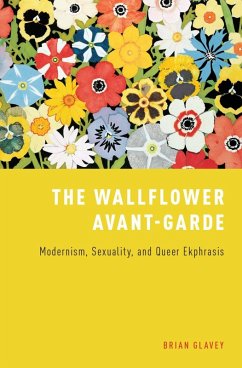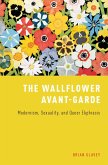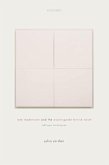The Wallflower Avant-Garde highlights a strain of formalism visible in both modernist literature and contemporary queer studies, drawing attention to an aesthetic that is as quiet and quirky as it is queer. In studies of Gertrude Stein, Djuna Barnes, Richard Bruce Nugent, Frank O'Hara, and John Ashbery, Brian Glavey argues for a recalibrated understanding of the relation between sexuality and the aesthetic, revealing a non-oppositional avant-gardism that opts out of some of the binaristic imperatives that have structured recent debates in queer theory. Refusing to decide between positive and negative affects or to side with either utopian or antisocial ambitions, The Wallflower Avant-Garde explores models of reading and writing about art that remain flexible enough to dig deep even as they gloss the surface. At the heart of this argument is a revaluation of modernist ekphrasis, a mode understood as literature's imitation or description of the visual arts. From the well-wrought urns of the New Critics onward, ekphrasis has figured prominently in the legacy of modernist literary criticism, but a tendency to read its complicated modes of relationality in terms of either autonomy or antagonism has obscured the forms of creative failure and imitation embodied in the desire to confuse poetry for pottery. Attending to mimetic and descriptive strategies without dismissing the aspirations for wholeness and closure that often animate them allows for the recognition that queerness and modernism are intertwined in unexpected and unpredictable ways, revealing new insights into the varieties of abstraction, preterition, and spatial form that stand behind modernism's investment in the aesthetic.
Dieser Download kann aus rechtlichen Gründen nur mit Rechnungsadresse in A, B, BG, CY, CZ, D, DK, EW, E, FIN, F, GR, HR, H, IRL, I, LT, L, LR, M, NL, PL, P, R, S, SLO, SK ausgeliefert werden.









